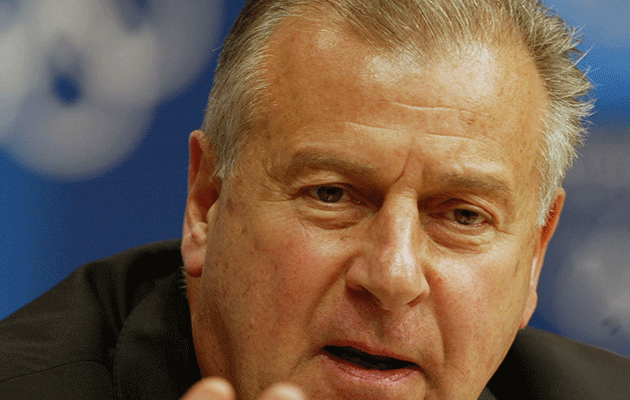Francois Carrard, the Swiss lawyer who chairs FIFA’s resurrected reform committee, has offered a robust account of the panel’s work – and the realpolitik involved.
Carrard, a former director-general of the International Olympic Committee, was responding at the ICSS Securing Sport conference to a question-and-answer session with United States journalist Alan Abrahamson.
He was appointed in August to head a committe compromising two delegates from each of the six confederations, sparking scepticism from the world football federation’s critics about its credibility or ability to enact essential changes.
Carrard acknowledged that FIFA was in “a very serious crisis” triggered by the investigations of the United States and Swiss judicial authorities and which led to the creation of his committee.
He said: “I was under attack from day one becaue they said I was the only independent individual but since then I’ve found some people who are totally committed and dedicated to reform and also realistic about the job to be done.”
Carrard also set out his belief in the need for ‘insiders’ to assist in leading the charge to change.
He said: “FIFA started a reform process in 2011 with an excellent group of outside advisers and their reform proposals were excellent but, at some point in time, you need insiders to push them through . . . if these come only from outside then your chances of success are limited.”
Carrard reviewed the proposals already prepared to be set in early December before the FIFA executive committee which must decide which recommendations to recommend to congress next February 26.
He said: “We are proposing a term limit for the president of 12 years though he have not finalised whether it should be three terms of four, or two of six or eight plus four. For example, if the term is short then maybe the president will be forced to campaign again very quickly.”
Carrard also contradicted recent negative comments about an age limit from reform committee member Sheikh Ahmad Al-Fahad Al-Sabah.
He said: “There are some discussions because in some countries if you have an excellent young leader in a country which does not have much talent available then, by the time he is 40 maybem, he cannot go on and in some cases it’s a pity.
“You have to think globally: Vietnam is not like Germany, Andorra is not China.”
However Carrard added: “Where we are all agreed is there must be an age limit and the last time to apply [for a four-year term] should be when you are 70 – hence at 74 it’s finished.”
Carrard also said his committee would propose the presence of six women – one for each confederation – on the FIFA exco because “gender balance is a fundamental issue.”
He also hoped that the committee could discuss its reform proposals with all the seven contenders for the presidency to ensure they were all on board.
Overall Carrard remained positive about the process and its likely outcome, saying: “FIFA deserves far better than its present status. There are millions of wonderful people in the world of soccer, thousands of dedicated leaders, coaches, players and fans who deserve reform – and I sense a will to change.
“When [FIFA officials] found, at their hotel, instead of room service but the Swiss police then that is a shock and triggered a conscience.
“For example, which organisation has ever suspended its president and secretary-general [Sepp Blatter and Jerome Valcke]? It’s FIFA. Not outsiders. So the institution has a big crisis but there and is a will and a way and we are there to help contribute to that.”







